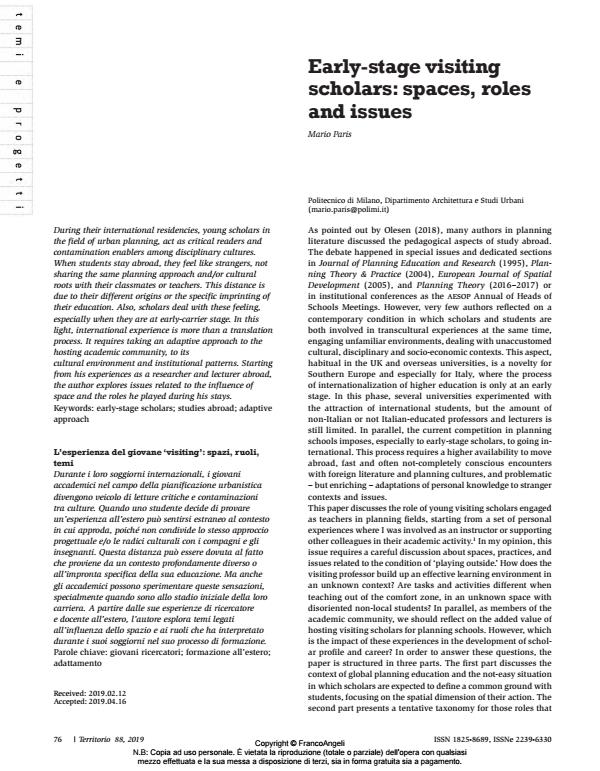Early-stage visiting scholars: spaces, roles and issues
Journal title TERRITORIO
Author/s Mario Paris
Publishing Year 2019 Issue 2019/88
Language English Pages 5 P. 76-80 File size 134 KB
DOI 10.3280/TR2019-088012
DOI is like a bar code for intellectual property: to have more infomation
click here
Below, you can see the article first page
If you want to buy this article in PDF format, you can do it, following the instructions to buy download credits

FrancoAngeli is member of Publishers International Linking Association, Inc (PILA), a not-for-profit association which run the CrossRef service enabling links to and from online scholarly content.
During their international residencies, young scholars in the field of urban planning, act as critical readers and contamination enablers among disciplinary cultures. When students stay abroad, they feel like strangers, not sharing the same planning approach and/or cultural roots with their classmates or teachers. This distance is due to their different origins or the specific imprinting of their education. Also, scholars deal with these feeling, especially when they are at early-carrier stage. In this light, international experience is more than a translation process. It requires taking an adaptive approach to the hosting academic community, to its cultural environment and institutional patterns. Starting from his experiences as a researcher and lecturer abroad, the author explores issues related to the influence of space and the roles he played during his stays.
Keywords: Early-stage scholars; studies abroad; adaptive approach
Mario Paris, Early-stage visiting scholars: spaces, roles and issues in "TERRITORIO" 88/2019, pp 76-80, DOI: 10.3280/TR2019-088012